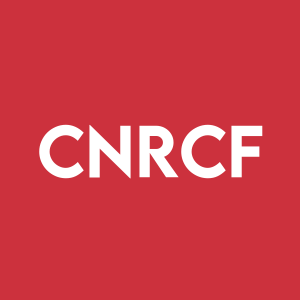Canter Outlines Significant Subsurface Brine Target with Updated 3D Modeling
- Canter Resources Corp. completes a 3D model for lithium exploration at the Columbus Lithium-Boron Project.
- HSAMT geophysical data guides targeting of conductive bodies with resistivity values indicating brine fluids.
- Historical data and surface sampling reveal high lithium and boron levels, supporting the Company's exploration efforts.
- Limitations in data interpretation are acknowledged, but geological evidence suggests the potential for deeper brine reservoirs.
- Eric Saderholm, a Qualified Person, reviewed and approved the technical information.
- None.
Vancouver, British Columbia--(Newsfile Corp. - March 20, 2024) - Canter Resources Corp. (CSE: CRC) (OTC Pink: CNRCF) (FSE: 6O1) ("Canter" or the "Company") is pleased to report that the Company has completed a comprehensive 3D model that incorporates all of the recently reinterpreted geophysical data and third party datasets. The new 3D model has further refined the understanding of subsurface structures and potential lithium-bearing brine formations covering an expanded 5 by 10 kilometre ("km") target area outlined within the central part of the Columbus Lithium-Boron Project ("Columbus" or the "Project").
Hybrid Source Audio-Magneto Telluric (HSAMT) geophysical data provides an important guide for targeting conductive bodies, with low resistivity values indicating the presence of highly conductive material interpreted to represent brine fluids within aquifers and pore spaces. There are numerous examples of lithium-brines correlating to HSAMT resistivity values of <1 ohm metre and the Company views the <0.5 ohm-metre resistivity as particularly favourable for potential lithium ("Li") concentrations (see Figures 1 and 2).
"Our new detailed 3D work integrates our structural and stratigraphic interpretations and provides us with a predictive exploration model that leverages historical drilling and 15 years of reprocessed geophysical data," stated Joness lang, CEO of Canter. "Most importantly, the 3D rendering of HSAMT resistivity shells shows a very compelling brine target that our team is excited to begin testing with Geoprobe and exploration well drilling during our Phase I program."
The HSAMT ground-based geophysical method has enabled the mapping of subsurface resistivity through detailed 3D modeling, indicating several resistivity-defined shells spanning a volume extending 5 km wide by 10 km long and down to depths of approximately 600 metres. These highly conductive shells, indicative of brine solutions, are the focus of the Company's lithium enriched targeting efforts. Supporting the HSAMT data, historical surface sampling and prior drilling in less conductive areas, considered less prospective, have yielded lithium values up to 1600 ppm and boron levels exceeding 10,000 ppm, revealing a multi-tiered aquifer system.
To the Company's knowledge, the upcoming drilling will represent the first drilling within the Columbus Basin that tests zones with resistivity values indicating this degree of conductivity. The priority target area is well within the Company's 23,000-acre Columbus property package and expanding HSAMT coverage will be considered later this year.
Figure 1: Oblique 3D view looking east showing planned exploration well locations set to start with CB24-001 to begin testing the significant volume of <0.5 ohm-metre conductive material at Columbus.
To view an enhanced version of this graphic, please visit:
https://images.newsfilecorp.com/files/10112/202359_162ebd81644ac94f_001full.jpg
Figure 2: Section view highlighting HSAMT resistivity layers and exploration well locations.
To view an enhanced version of this graphic, please visit:
https://images.newsfilecorp.com/files/10112/202359_162ebd81644ac94f_002full.jpg
It is pertinent to acknowledge certain limitations associated with HSAMT data interpretation, specifically regarding the attenuation of electromagnetic signals as they traverse highly conductive layers. This can result in an underestimation of the true depth and lateral extent of conductive zones. Nonetheless, corroborative geological data from historic drilling, demonstrating notable lithium concentrations at depths extending below the Company's modeled 1-ohm metre shell, suggest that conductive brine reservoirs may indeed extend deeper than initially interpreted from HSAMT data alone.
Further supporting the potential for significant depth extension of these brine-bearing formations is the structurally closed nature of the Columbus Basin, coupled with the presence of a profound gravity low-evidencing a depth to basement rocks of approximately 4 km. This structural configuration and geophysical anomaly provide compelling additional lines of evidence for the potential existence of extensive, deep-seated brine reservoirs within the basin.
Qualified Person (QP)
The technical information contained in this news release was reviewed and approved by Eric Saderholm P.Geo, Director and Technical Advisor of Canter Resources, a Qualified Person (QP), as defined under National Instrument 43- 101 - Standards of Disclosure for Mineral Projects.
About Canter Resources Corp.
Canter Resources Corp. is a Canadian junior mineral exploration company advancing the Columbus Lithium-Boron Project in Nevada, USA, the Beaver Creek Lithium Property in Montana, USA, and the Puzzle Lake Property in Saskatchewan, Canada. The Company is preparing for a Phase I drill campaign at Columbus to test a highly prospective lithium-brine target and plans to leverage the Company's critical metals targeting database to generate a portfolio of high-quality projects with the aim of defining mineral resources that support the domestic clean energy supply chain in North America.
For further information contact:
Joness Lang
Chief Executive Officer
Canter Resources Corp.
jlang@canterresources.com
For investor inquiries contact:
Kristina Pillon, High Tide Consulting Corp.
Tel: 604.908.1695
investors@canterresources.com
The Canadian Securities Exchange has neither approved nor disapproved the contents of this news release. The Canadian Securities Exchange does not accept responsibility for the adequacy or accuracy of this news release.

To view the source version of this press release, please visit https://www.newsfilecorp.com/release/202359









